Have any question?
Call (409) 861-4450
Call (409) 861-4450
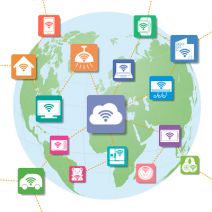 The introduction of new and exciting technologies keeps changing the ways people interact. Innovations such as email, instant messaging, and the development of mobile devices are now turning out to be just fundamental steps to a more connected planet. The Internet of Things is set to turn human civilization on its head. What does this shift mean for the immediate future?
The introduction of new and exciting technologies keeps changing the ways people interact. Innovations such as email, instant messaging, and the development of mobile devices are now turning out to be just fundamental steps to a more connected planet. The Internet of Things is set to turn human civilization on its head. What does this shift mean for the immediate future?
 Mobile devices have taken the workplace environment by storm, and you’d be hard-pressed to find anyone who doesn’t use their smartphone, laptop, or other device for work purposes. This trend, called Bring Your Own Device (BYOD), helps employers spend less on new solutions, but it also presents a risk that needs to be managed: the Internet of Things (IoT).
Mobile devices have taken the workplace environment by storm, and you’d be hard-pressed to find anyone who doesn’t use their smartphone, laptop, or other device for work purposes. This trend, called Bring Your Own Device (BYOD), helps employers spend less on new solutions, but it also presents a risk that needs to be managed: the Internet of Things (IoT).
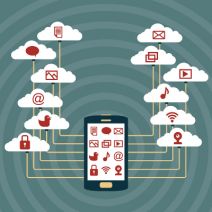 Business owners are taking great strides toward freeing themselves from the confines of the office environment once and for all. This means integrating wireless technology into every aspect of the way you handle operations. However, there are still some uses for wired technology that wireless cannot facilitate.
Business owners are taking great strides toward freeing themselves from the confines of the office environment once and for all. This means integrating wireless technology into every aspect of the way you handle operations. However, there are still some uses for wired technology that wireless cannot facilitate.
 Do you remember the good old days when a simple magic trick was capable of bringing a smile to anyone’s face? Optical illusions, card tricks, or sleight of hand; all of these are basic tactics used by the average magician. However, Simon Pierro, a German magician, uses his iPad to come up with mind-bendingly spectacular tricks that take advantage of modern technology.
Do you remember the good old days when a simple magic trick was capable of bringing a smile to anyone’s face? Optical illusions, card tricks, or sleight of hand; all of these are basic tactics used by the average magician. However, Simon Pierro, a German magician, uses his iPad to come up with mind-bendingly spectacular tricks that take advantage of modern technology.
 Your smartphone is, without a doubt, a valuable business asset. It keeps you connected to your business at all times, even when you’re home; but is this a good thing? Have you ever considered what your significant other might feel if you answer your phone while out to dinner? Thanks to the indisputable power of social science research, it’s been proven that smartphones are bad for our personal relationships. Gasp!
Your smartphone is, without a doubt, a valuable business asset. It keeps you connected to your business at all times, even when you’re home; but is this a good thing? Have you ever considered what your significant other might feel if you answer your phone while out to dinner? Thanks to the indisputable power of social science research, it’s been proven that smartphones are bad for our personal relationships. Gasp!
 How smart are smartphones really making us? If we’re honest with ourselves, most of us would admit that our mobile phones are more for entertainment and efficient communications, and less about actually being used to make ourselves smarter. Thanks to augmented reality technology becoming more accessible, perhaps smartphones will one day live up to their name.
How smart are smartphones really making us? If we’re honest with ourselves, most of us would admit that our mobile phones are more for entertainment and efficient communications, and less about actually being used to make ourselves smarter. Thanks to augmented reality technology becoming more accessible, perhaps smartphones will one day live up to their name.
 Mobile is all the rage nowadays. Industry giants such as Microsoft and Apple claim to have mobile devices that make the PC obsolete. It makes for great marketing, but do mobile devices have what it takes to keep employees productive inside and outside of the workplace? The statistics say no, but the gap is closing. Here are three mobile myths all CIOs should consider.
Mobile is all the rage nowadays. Industry giants such as Microsoft and Apple claim to have mobile devices that make the PC obsolete. It makes for great marketing, but do mobile devices have what it takes to keep employees productive inside and outside of the workplace? The statistics say no, but the gap is closing. Here are three mobile myths all CIOs should consider.
 Anyone who has been following the recent trends in technological growth will come to the conclusion that mobile technology is more popular, and has taken its rightful place at the head of the pack. 2014 may see even more drastic shifts toward the mobile revolution, cementing its place as the preferred mode of computing.
Anyone who has been following the recent trends in technological growth will come to the conclusion that mobile technology is more popular, and has taken its rightful place at the head of the pack. 2014 may see even more drastic shifts toward the mobile revolution, cementing its place as the preferred mode of computing.
 For the past decade, touch-screens have changed the way that we as a society touch technology, and have greatly increased the mobility of business in that short time. This trend started with the smartphone, then spread to the 10-inch tablet and larger tablets - perfect for watching YouTube videos, Netflix, or other media consumption.
For the past decade, touch-screens have changed the way that we as a society touch technology, and have greatly increased the mobility of business in that short time. This trend started with the smartphone, then spread to the 10-inch tablet and larger tablets - perfect for watching YouTube videos, Netflix, or other media consumption.
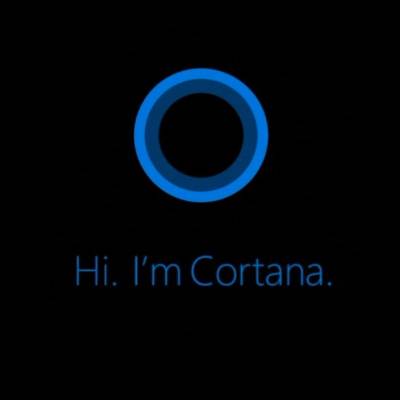 Microsoft has changed its tune recently. They have made a serious push to take advantage in the mobile computing explosion by creating software that is designed specifically for the mobile device user. When the software giant released Windows Phone 8 in the fourth quarter of 2012, many thought it was only a matter of time before the software would resonate with mobile users. Unfortunately for Microsoft, the smartphone market hasn't been as friendly as the home and business computing market, and Windows Phone 8 has been a thorough disappointment.
Microsoft has changed its tune recently. They have made a serious push to take advantage in the mobile computing explosion by creating software that is designed specifically for the mobile device user. When the software giant released Windows Phone 8 in the fourth quarter of 2012, many thought it was only a matter of time before the software would resonate with mobile users. Unfortunately for Microsoft, the smartphone market hasn't been as friendly as the home and business computing market, and Windows Phone 8 has been a thorough disappointment.
 Anybody who has been paying attention to the technology field has heard echoes of the looming decline of PC sales. Now, that prediction has not only come to fruition, but it is much worse than many have previously imagined. In 2012, both the IDC (International Data Corporation) and the Gartner Group reported that global PC shipments in the 3rd quarter had fallen 8% from the previous year. The latest numbers released on December 2nd, 2013 were not good news for the world of traditional desktop and laptop computers.
Anybody who has been paying attention to the technology field has heard echoes of the looming decline of PC sales. Now, that prediction has not only come to fruition, but it is much worse than many have previously imagined. In 2012, both the IDC (International Data Corporation) and the Gartner Group reported that global PC shipments in the 3rd quarter had fallen 8% from the previous year. The latest numbers released on December 2nd, 2013 were not good news for the world of traditional desktop and laptop computers.
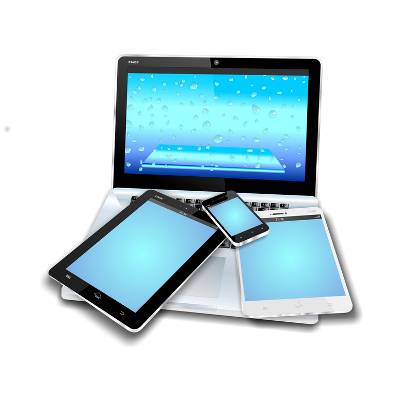 The advantage of staying on top of the latest technology trends is that your business can utilize the newest solutions designed to give your company the competitive edge. New technology makes doing business easier and increases profits. There are three hot technology trends in 2014 that you should know about. We've looked at two trends already, now to our third, mobile computing.
The advantage of staying on top of the latest technology trends is that your business can utilize the newest solutions designed to give your company the competitive edge. New technology makes doing business easier and increases profits. There are three hot technology trends in 2014 that you should know about. We've looked at two trends already, now to our third, mobile computing.
 It's a classic battle. Android versus iOS, a technological battle royale for our portable device hearts. It was a very interesting year for both platforms as iOS launched the largest revamp of its software to date with iOS7, and it seemed like every budget device out there was running some sort of Android software. Apple critics were quick to point out that their new software had astonishing similarities in both looks and feel to Android, while Android critics were quick to point out Apple devices with the new A7 chip were faster and more powerful than anything else on the market. So, who won out in 2013? The numbers may surprise you.
It's a classic battle. Android versus iOS, a technological battle royale for our portable device hearts. It was a very interesting year for both platforms as iOS launched the largest revamp of its software to date with iOS7, and it seemed like every budget device out there was running some sort of Android software. Apple critics were quick to point out that their new software had astonishing similarities in both looks and feel to Android, while Android critics were quick to point out Apple devices with the new A7 chip were faster and more powerful than anything else on the market. So, who won out in 2013? The numbers may surprise you.
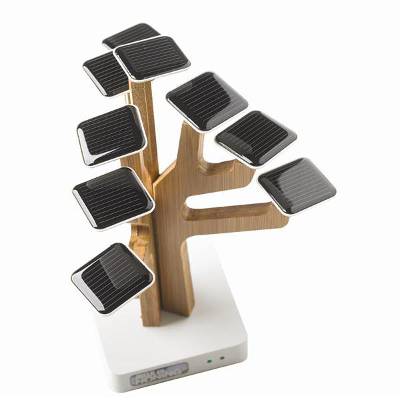 Smartphones and tablets are everywhere, and it's no secret that people are tied to their devices. App markets are filled with all types of software that, if used properly, can help manage every aspect of a person's life and connect them to databases filled with humanity's accrued knowledge. The polling professionals at Gartner found that over 1.2 billion such devices were purchased in 2013 alone. This boom gives innovators new markets to explore. XD Design is doing just that with their line of solar-powered chargers.
Smartphones and tablets are everywhere, and it's no secret that people are tied to their devices. App markets are filled with all types of software that, if used properly, can help manage every aspect of a person's life and connect them to databases filled with humanity's accrued knowledge. The polling professionals at Gartner found that over 1.2 billion such devices were purchased in 2013 alone. This boom gives innovators new markets to explore. XD Design is doing just that with their line of solar-powered chargers.
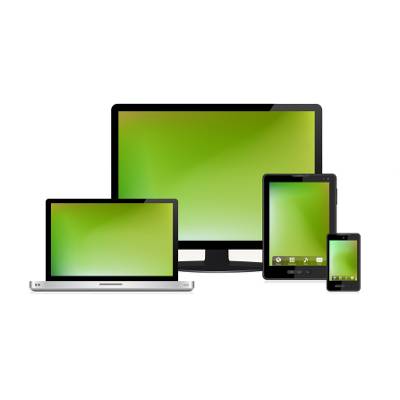 Remember back when buying mobile devices for your business meant choosing between a handful of laptops? Thanks to the increased proliferation of devices like smartphones, tablets, netbooks, and the development new hybrid models, it's become quite the task to pick out the right make and model. Here are five questions to consider when picking out mobile devices for your organization.
Remember back when buying mobile devices for your business meant choosing between a handful of laptops? Thanks to the increased proliferation of devices like smartphones, tablets, netbooks, and the development new hybrid models, it's become quite the task to pick out the right make and model. Here are five questions to consider when picking out mobile devices for your organization.
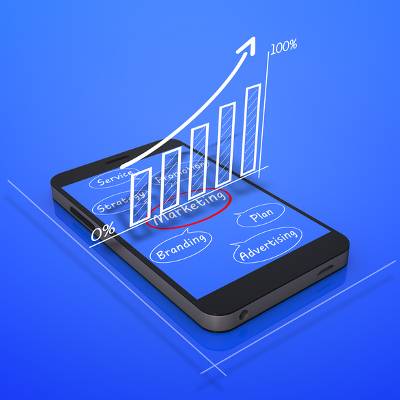 Mobile technology use is growing at such a fast rate that it's proving to be more than a trend. In the U.S., 56% of adults own a smartphone, and for businesses with an Internet presence, 31% of conversions took place over a mobile device last year. This mobile revolution has huge implications for how your business reaches new customers.
Mobile technology use is growing at such a fast rate that it's proving to be more than a trend. In the U.S., 56% of adults own a smartphone, and for businesses with an Internet presence, 31% of conversions took place over a mobile device last year. This mobile revolution has huge implications for how your business reaches new customers.
Get the Knowledge You Need to Make IT Decisions
Technology is constantly evolving, and keeping up can feel overwhelming. Whether you want to understand cybersecurity threats, explore automation, or learn how regulations like PCI DSS impact your business, we’ve made it easy to access clear, straightforward insights on key IT topics.
Learn more about what NetWorthy Systems can do for your business.
NetWorthy Systems
701 W. Division Ave Suite 100
Orange, Texas 77630